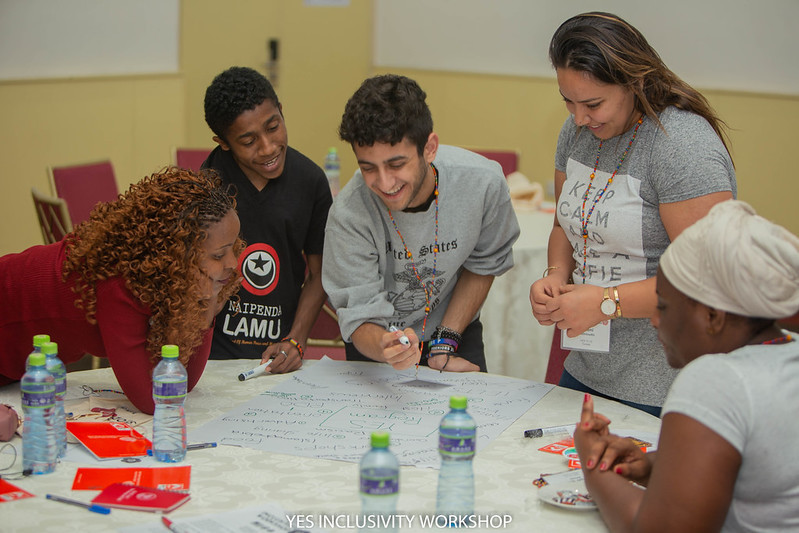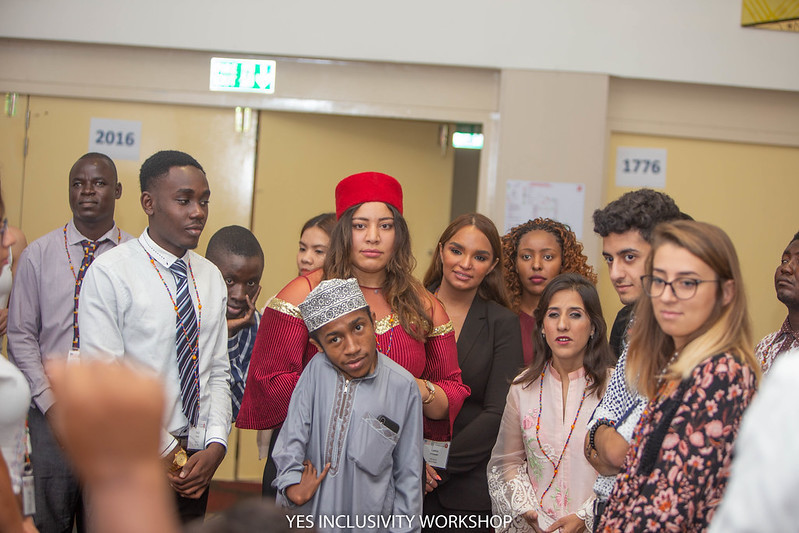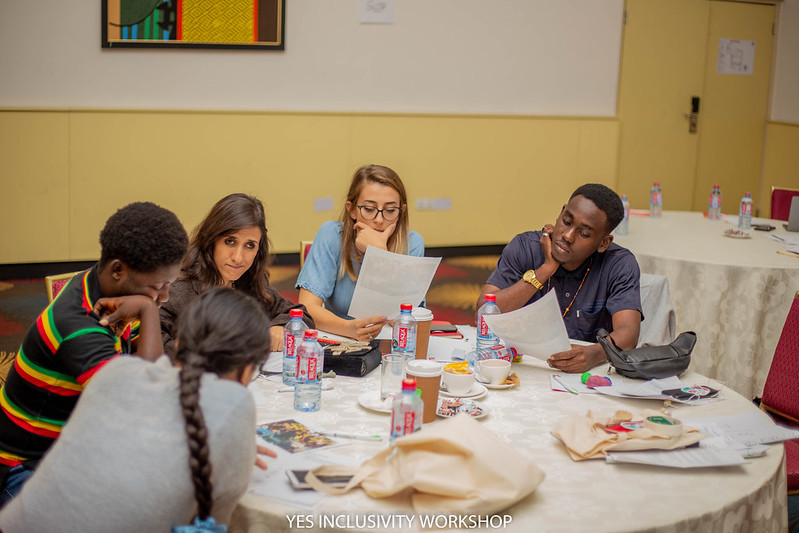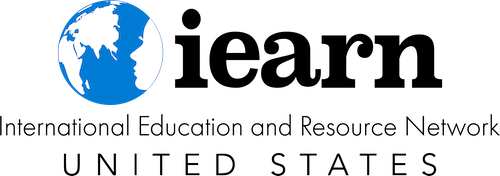Building More Inclusive Programming for Youth with Disabilities - YES Inclusivity Workshop in Accra, Ghana
Posted on October 31, 2019
In collaboration with various partners and organizations, iEARN-USA helps implement programs that provide opportunities for young people to experience meaningful international exchanges. One such program is the Kennedy-Lugar Youth Exchange and Study (YES) Program. The YES program, funded by the U.S. Department of State, provides scholarships for secondary school students from countries with significant Muslim populations to spend one academic year in the United States. Students live with host families, attend high school, engage in activities such as community service to learn about American society and values, acquire leadership skills, and help educate Americans about their countries and cultures.
Upon returning to their home countries, students on the YES program become part of the YES Alumni Network. They take on the role of young leaders by organizing projects that benefit their communities while also sharing their experiences on the YES program with their local community. The YES program is particularly focused on providing opportunities to students from low-income backgrounds; female students and students with disabilities are also highly encouraged to apply to the program.
In order to provide a platform for YES alumni who are passionate about disability rights, iEARN-USA worked with AFS-USA and AFS Ghana to host the first-ever YES-wide Inclusivity Workshop in Accra, Ghana from October 15-22, 2019. The Workshop was aimed at gathering passionate alumni for a working format style workshop to develop resources and ideas to advance YES program inclusivity efforts. Another goal of the Workshop was to provide skill-building sessions for the alumni participants to strengthen advocacy, teamwork, and leadership skills while networking with YES alumni from other countries with similar passions and experience. Sixteen solution-oriented YES alumni attended the workshop; these alumni came from Albania, Cameroon, Ghana, Kenya, Lebanon, Liberia, Morocco, Pakistan, Saudi Arabia, Sierra Leone, South Africa, Tanzania, Thailand, and Tunisia and brought together their unique experiences and perspectives together to the Inclusivity Workshop.

Participants spent their days attending two different session formats: capacity building and resource building. With skilled facilitators guiding them, alumni attended sessions to build their capacity in advocacy, teamwork, allyship, and leadership skills. With the new skills and knowledge in hand from capacity building sessions paired with their own experiences, YES alumni were divided into small groups to brainstorm ideas to make the YES program more inclusive during recruitment and selection as well devising alumni activities for YES alumni with disabilities.
"The inclusivity workshop in Ghana was one of a kind for it held lots of core factors in regard to disable communities around the world. It enlightened and broaden our minds on what a disable can do regardless his/her condition. From the workshop we were able to learn some of the success stories that occurred in different parts of the world and can use that as a way of bringing change to our community and country at large. It taught us that disability is not inability and we can do anything if we put our minds to it and also by following the right chain of network." - Omar, Kenya
Sessions covered discussions around models of leadership, the history of disability rights and justice, and concrete steps required to implement changes in policies that make systems and institutions more inclusive. In order to deliver these sessions, the workshop welcomed experienced trainers Andraea LaVant and Christiana Yaghr. The participants of the Inclusivity Workshop left with stronger skills and YES alumni networks to advocate for and raise awareness of disability rights, laws, and resources in their communities. All YES alumni were encouraged to continue working on resources with fellow alumni and YES staff in their home communities.

Participants were also able to see firsthand how organizations in Ghana are making efforts to be more inclusive in the classroom. Participants went on a site visit to the Multikids Academy in Accra, which is the first international inclusive school in Ghana and aimed at creating access to quality education to children regardless of their academic, social, or physical needs. By learning about how the school provides various resources to students with learning disabilities and special needs, participants were encouraged to think about ways to advance the inclusivity efforts by the YES program.

Check out photos and videos from the workshop on this Flickr album. Read more about the YES Inclusivity Workshop Trainers below:
Andraéa LaVant is founder and president of LaVant Consulting, Inc., a strategy and communications firm dedicated to fostering disability-inclusive cultures across all sectors. As a communications consultant and inclusion specialist, Andraéa has over a decade of experience working with programs that support youth and adults with disabilities and other underserved populations. Her professional roles and personal advocacy have presented her with a variety of notable opportunities to share messages and prompt change for people with disabilities across the globe.
Christiana Yaghr is the regional president of the Women’s Wing of the Upper West Region Association of the Deaf (UWAD-WW), which is a regional branch of the Ghana National Association of the Deaf (GNAD). In this role, Christiana works passionately to mobilize women who are Deaf in the rural areas of Ghana to access information and education, and oversees the implementation of activities within eleven districts, as well as the capital, in her region. With a strong focus on the leadership of women who are Deaf and hard of hearing, Christiana is a relentless advocate for the inclusion and participation of women and girls who are Deaf in the design and policy planning phase of community programs. As a result of her advocacy and community mobilizing, Deaf women and girls are now included in community programs focused on people with all types of disabilities and no longer segregated into programs exclusively for people who are Deaf. Christiana is Deaf and uses sign language.
